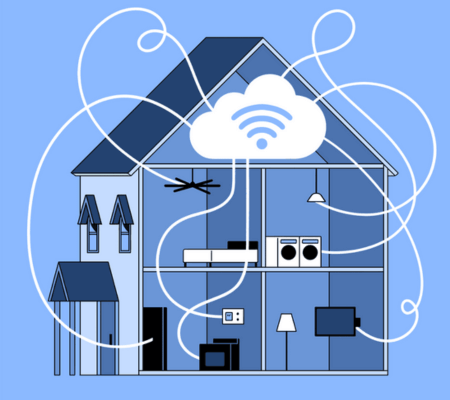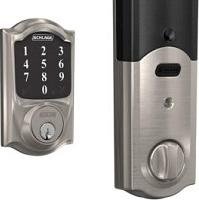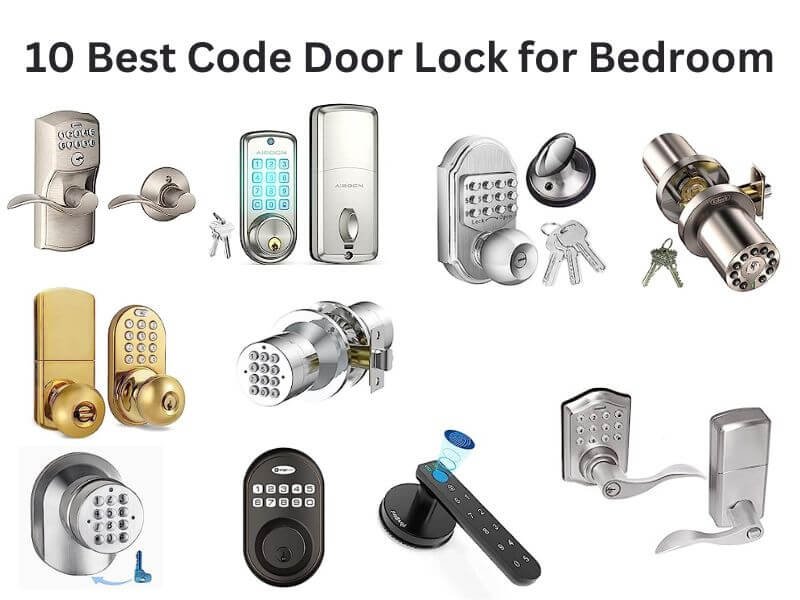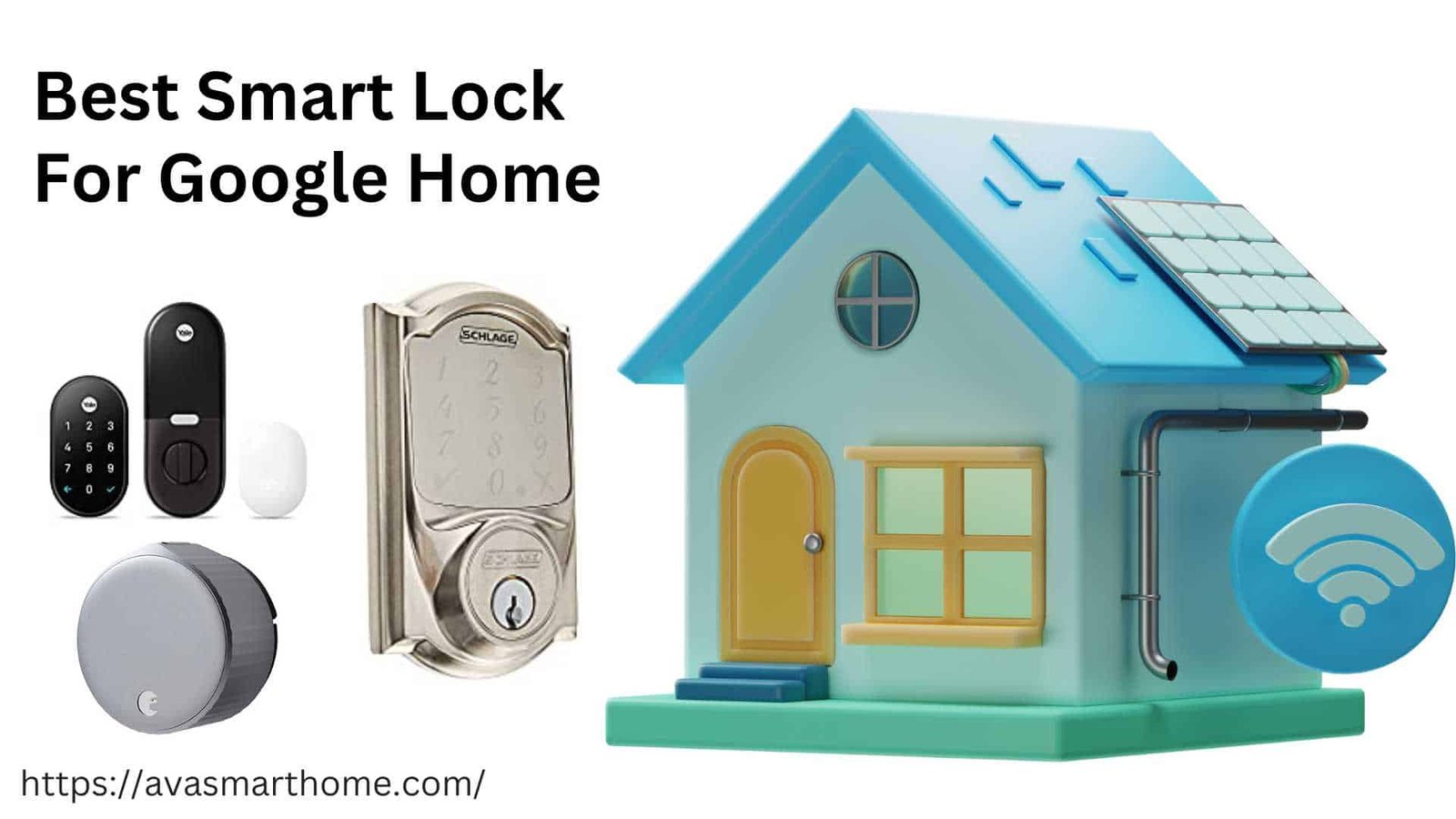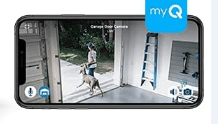
Door locks have become more essential than ever. As it helps in the security of your house and keeps your house safe from intruders. In this post, we will discuss what is the benefit of smart door locks.
Table of Contents
ToggleExploring the Best: What Is a Smart Door Locks Benefit?
In today’s rapidly evolving world of technology, the humble door lock has received a futuristic makeover. Smart door locks have emerged as innovative solutions that blend security, convenience, and connectivity into one sleek package. In this article, we will delve into what smart door locks are, the benefits they offer, and how they compare to traditional locks.
What is a Smart Door Lock?
A smart door lock is a sophisticated, electronically controlled locking system designed to enhance security while providing homeowners with convenient access control.
These locks are equipped with various features that can be controlled remotely via a smartphone, tablet, or other internet-connected devices. Smart door locks can replace or work in conjunction with traditional mechanical locks to provide an extra layer of protection and convenience.
Benefits of Smart Door Locks:
- Enhanced Security: Smart door locks offer advanced security features such as encryption, tamper alerts, and real-time monitoring. They can also send instant notifications to homeowners when someone attempts to tamper with the lock or enters the property.
- Convenient Access Control: With smart door locks, you can grant access to your home remotely. Whether you need to let in a guest, a family member, or a service provider, you can do so without being physically present. You can also set temporary access codes or use biometric authentication for added security.
- Keyless Entry: Forget about carrying bulky keychains or worrying about losing keys. Smart door locks often use keyless entry methods like PIN codes, fingerprints, or smartphone apps, making entering your home a breeze.
- Integration with Smart Home Systems: Smart door locks can seamlessly integrate with your existing smart home ecosystem. They can work in tandem with security cameras, alarm systems, and voice assistants, providing a comprehensive home security solution.
- Remote Monitoring: Check the status of your door lock remotely, ensuring that your home is secure no matter where you are. Some locks even offer video streaming capabilities, allowing you to see who is at your door.
Traditional Lock vs. Smart Lock:
Traditional Lock:
- Mechanical: Traditional locks rely on mechanical components such as keys and tumblers. They have been used for centuries and are well-understood.
- Limited Access Control: With traditional locks, you need to be physically present to grant access to others. You might need to make extra keys or provide a spare to trusted individuals.
- No Remote Monitoring: Traditional locks do not offer remote monitoring or real-time alerts. You may not be aware of unauthorized access until you return home.
- Key Management: Managing physical keys can be a hassle, as they can be lost or stolen, potentially compromising your security.
Smart Lock:
- Electronic: Smart locks rely on electronic components and can offer a higher level of security through features like encryption and remote access control.
- Convenient: Smart locks provide convenient access control options, such as PIN codes and smartphone apps, allowing you to manage access from anywhere.
- Remote Monitoring: You can monitor your smart lock remotely, receive notifications, and even view security camera footage if integrated.
- Keyless: Eliminate the need for physical keys, reducing the risk of lost or stolen keys compromising your security.
In the world of home security, smart door locks have redefined the way we think about access control. Offering a combination of enhanced security and convenience, smart locks have become a popular choice for homeowners seeking modern solutions to their security needs. While traditional locks have their merits, smart door locks provide an impressive array of benefits that cater to the demands of our connected and fast-paced lifestyles.
Related:
Features of a Smart Door Lock System
Smart door lock systems have revolutionized home security and convenience, offering a wide range of features that cater to modern lifestyles.
-
Keyless Entry:
One of the hallmark features of a smart door lock system is keyless entry. This means you no longer need to fumble for keys or worry about losing them. Instead, you can enter your home using various methods such as:
- PIN Codes: You can set unique PIN codes for family members, friends, or service providers. These codes can be easily changed or revoked when needed.
- Biometric Authentication: Some smart locks utilize biometric data, like fingerprints or retinal scans, for secure and convenient entry.
- Proximity Sensors: Smart locks equipped with proximity sensors can automatically unlock the door when they detect your presence, provided you have your smartphone or a key fob with you.
Related: Google Door Locks Redefining Home Security: The Future Unveiled
-
Remote Access via Smartphone App:
Smart door locks can be controlled remotely via a dedicated smartphone app. This feature offers several advantages:
- Lock/Unlock from Anywhere: You can lock or unlock your door from anywhere with an internet connection. This is particularly useful for letting in guests or service providers when you’re not at home.
- Real-time Notifications: Receive instant notifications on your smartphone whenever the door is locked or unlocked. This provides added security and peace of mind.
- Access History: The app often keeps a log of who entered and exited your home and when allowing you to review the access history.
-
Smart Home Devices Integration:
Smart door locks can seamlessly integrate with other smart home devices and ecosystems, creating a more connected and automated living space. Integration possibilities include:
- Voice Assistants: Connect your smart lock to voice assistants like Amazon Alexa, Google Assistant, or Apple HomeKit for voice-activated control.
- Security Cameras: Sync your smart lock with security cameras positioned at your front door to capture video footage of anyone entering or leaving.
- Smart Alarms: Integrate your lock with a smart alarm system to enhance overall home security. For example, you can set your alarm to arm automatically when the door is locked.
-
Additional Security Features:
Smart door locks often come with advanced security features to protect against unauthorized access and tampering:
- Tamper Alerts: Get notified if someone attempts to tamper with the lock or force their way in.
- Encryption: Many smart locks use encryption to safeguard communication between the lock and your smartphone or other devices.
- Emergency Access: In case of a power outage or lock malfunction, some smart locks offer backup methods for entry, such as a physical key or emergency code.
A smart door lock system offers a suite of features designed to enhance security, convenience, and connectivity in your home. With keyless entry options, remote access via smartphone apps, compatibility with smart home devices, and additional security features, these systems are a valuable addition to any modern home, offering both peace of mind and improved daily living.
Advantages of Using a Smart Door Lock System for Businesses:
-
Enhanced Security:
- Smart door lock systems offer advanced security features like encryption, tamper alerts, and real-time monitoring.
- Access can be tightly controlled through features like PIN codes or biometric authentication, reducing the risk of unauthorized entry.
-
Convenience and Flexibility:
- Business owners can grant and revoke access remotely, eliminating the need for physical keys and allowing for immediate adjustments to access permissions.
- Temporary access codes can be issued to contractors, employees, or visitors, which can be deactivated when no longer needed.
-
Access Monitoring and Accountability:
- Smart locks keep a detailed log of who enters and exits the premises, along with timestamps.
- This access history can be useful for tracking employee attendance, investigating security breaches, or providing evidence in case of disputes.
-
Integration with Other Systems:
- Smart door locks can seamlessly integrate with security cameras, alarms, and access control systems, creating a comprehensive security infrastructure.
- Integration with access control software allows for centralized management and customization of access levels.
-
Reduced Operational Costs:
- Eliminating the need for physical keys and rekeying can reduce costs associated with key duplication and lock replacement.
- Smart locks can be more durable and require less maintenance over time compared to traditional locks.
-
Remote Management:
- Business owners and managers can monitor and control multiple locations or entrances from a single dashboard, even if they are in different geographical locations.
Disadvantages of Using a Smart Door Lock System for Businesses:
- Initial Cost: Smart door lock systems often require a higher upfront investment compared to traditional locks and keys. This includes the cost of the hardware and any required infrastructure.
-
Dependency on Technology:
- Smart locks rely on technology, which means they can be vulnerable to power outages, network issues, or software glitches.
- Malfunctions or system failures can lead to unexpected access issues.
-
Cybersecurity Concerns:
- Smart door lock systems are connected to the internet, making them potential targets for cyberattacks.
- It’s essential to implement robust cybersecurity measures to safeguard against hacking and data breaches.
-
Compatibility and Integration Challenges:
- Ensuring compatibility with existing security systems, such as CCTV cameras or alarm systems, can be complex and may require additional hardware or software integration.
-
User Training:
- Employees may need training to use the system effectively, and ongoing education is necessary to ensure proper use and security practices.
-
Maintenance and Support:
- Regular maintenance and software updates are necessary to keep the system functioning correctly.
- Access to reliable technical support is essential to address any issues promptly.
-
Privacy Concerns:
- Collecting access data may raise privacy concerns among employees or visitors, and businesses must have clear policies in place regarding data collection and usage.
To summarize, smart door lock systems provide a range of benefits to businesses, including improved security, convenience, and access management. Nevertheless, they do have their drawbacks, including initial expenses, reliance on technology, and cybersecurity vulnerabilities.
It is crucial for business owners to conduct a thorough assessment of their unique needs, security priorities, and financial considerations before introducing a smart door lock system.
Related: Google Door Locks Redefining Home Security: The Future Unveiled

